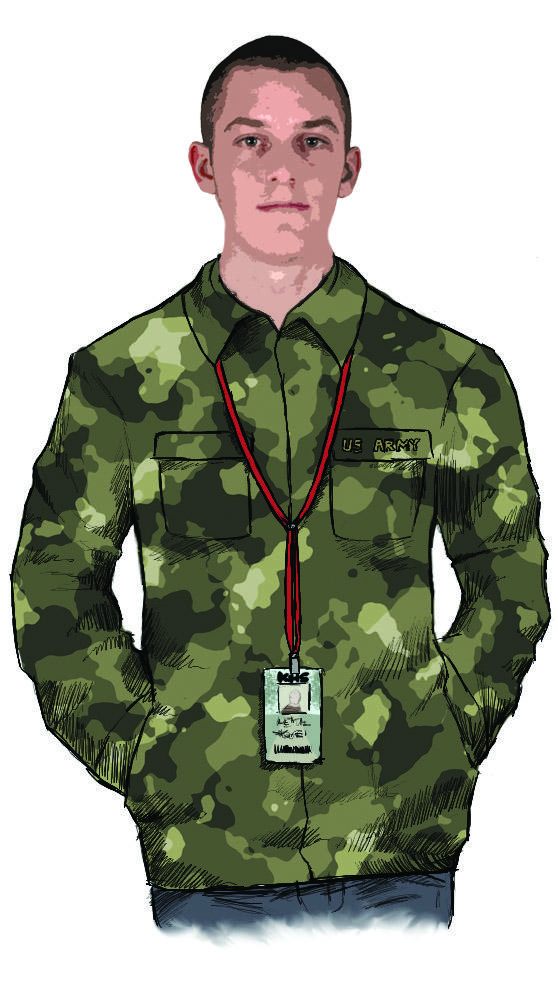At first, Kenny Klostermeyer’s head was the only place his decision to join the Army made sense. He wanted to devote himself to something different, something that had real meaning and purpose.
Klostermeyer, senior, set his sights on military service in seventh grade. Wanting to be sure that his desire to serve wasn’t just a phase, he waited a year to approach anyone in his family with the subject. Their response was not the one he expected, nor the one he had hoped for.
“So you just want to blow people up?” his uncle yelled when, soon after sharing the news with his family, Klostermeyer wore an Army t-shirt to his cousin’s baseball game.
His mother, Mary Ellen Klostermeyer, thought he was motivated by confusion and anger after his parents’ divorce or problems with friends at school.
“Your family always claims to be so thankful for what [soldiers] do,” Klostermeyer said. “And then you tell them you want to do the same thing and they say you’re being stupid. It’s really surprising.”
He didn’t fare much better with his friends.
“I actually lost a couple of friends after I started sharing my decision. People were just mean about it,” he said.
But as time passed and Klostermeyer endured transfers from St. Genevieve to St. Peters in middle school, from De Smet as a freshman to Vianney as a sophomore and, finally, to KHS as a junior, opening up about his choice for the future became easier and even enjoyable.
“I like getting into conversations about college because I get to say something different than everyone else,” he said.
Klostermeyer had been in contact with recruiters for nearly two years leading up to enlistment, which officially began in June, 2012. He experienced firsthand the lengthy, meticulous scrutiny new recruits undergo.
“You can become ineligible for having a single traffic ticket, for breaking you arm as a little kid — ridiculous stuff,” he said. “A buddy of mine took a couple of sleeping pills, and they disqualified him for that.”
New recruits are required to take two intellectual tests: first, a pre-test containing only math and vocabulary. Passing means a chance at the Armed Services Vocational Aptitude Battery (ASVAB), which is more comprehensive and determines further eligibility.
“After the ASVAB and a physical, they separate the guys and girls,” Klostermeyer said. “Guys have to strip down to their boxers and demonstrate a bunch of weird maneuvers, to make sure your joints are in shape.”
Since he hoped to obtain a position requiring supplemental security clearance, he underwent two interrogations, which brought the completed examination process to nearly eight hours.
“After it finally became official, my family started to accept it,” Klostermeyer said. “They realized at that point that I couldn’t go back even if I wanted to. My parents did their own research and realized it was beneficial [to my future] as a whole.”
Following his enlistment, Klostermeyer began dividing his remaining high school years between training Sunday and Thursday mornings at the South County US Army Recruiting (USAREC) Station and his two other passions: music and golf. Planning for life after the military is not as much of a concern.
“[Under the G.I. Bill, the government] will give me money for college if I want it, but I’ll probably only go if I need to,” he said. “I was told that if I pursued a degree in criminal justice afterward, I’d have no problem being hired by the CIA. That would be awesome.”
Still, his initial reasons for wanting to enlist remain resolute.
“It’s not every job [in which] people thank you for what you’re doing,” he said. “I want to do something that’s worthwhile and really means something. I want to be proud of myself instead of just letting everyone else be proud of me.”
Click here to learn more about how you can make the U.S. Army part of your future.










